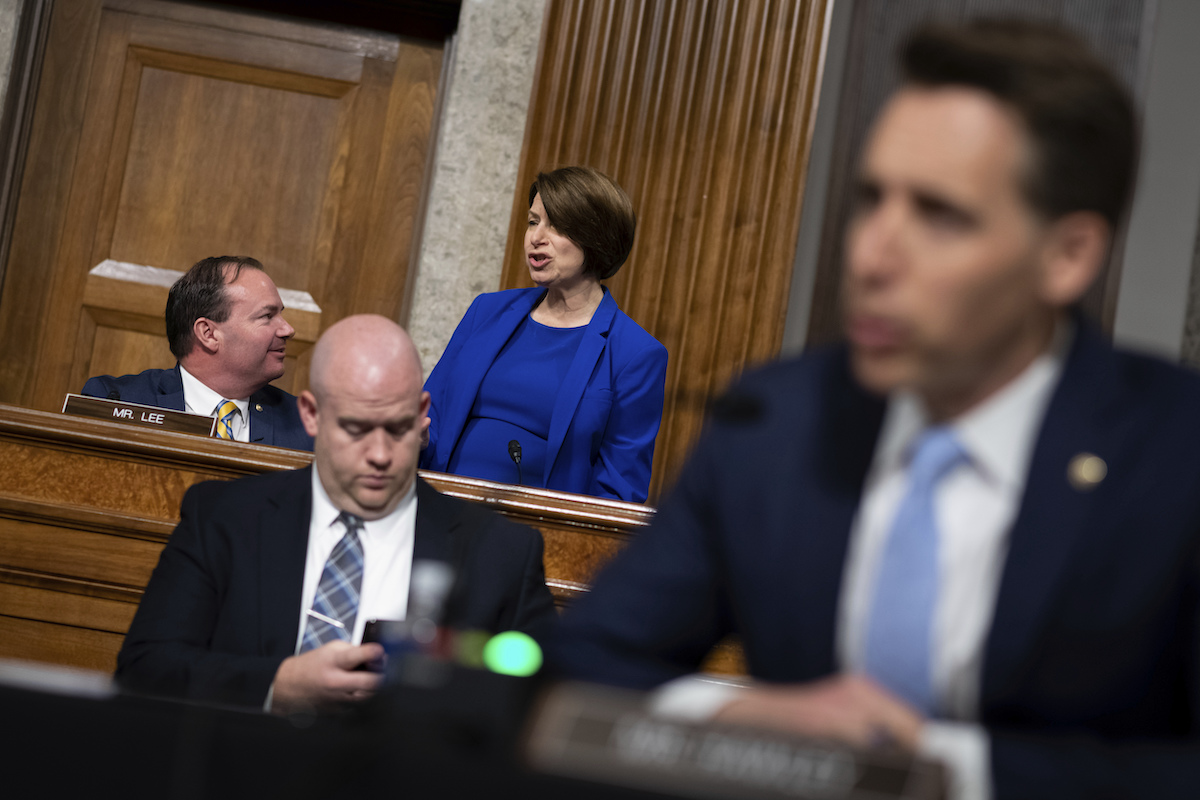The popular view of the recent NBA Finals is that the Boston Celtics and Golden State Warriors competed for the title of best team. The nation’s best basketball players traded points, victories, and fouls on the way to the Warriors pulling off the final victory.
The truth is more cynical: The NBA has unethically created a vertically integrated league that puts everything from popcorn and chairs to players and stadiums under the control of a single entity. This has prevented any serious competition to the NBA for a half-century and has resulted in players and owners making billions of dollars off consumers.
Of course, consumers could buy elsewhere—other sports or nonsport activities, high school or college games, or pickup basketball. That’s what I believe as a free-market economist and former college basketball player.
But a bipartisan group of U.S. senators disagree. Ranging from conservative populist Josh Hawley to liberal Democrat Amy Klobuchar, they don’t think consumers are smart enough to make their own choices. And so they’ve introduced the American Innovation and Choice Online Act, which is intended to reduce companies’ ability to create efficiencies through bringing disparate parts of their supply chain under one company umbrella—known in corporate circles as “vertical integration.”
Ironically, Klobuchar and Hawley are pretending to bravely stand up for consumers who buy from companies like Amazon, one of the world’s most innovative companies. But if that was their real goal, they’d target the NBA and other non-online companies that have just as much control over their supply chain … but don’t draw as much controversy among the political class.
As Senator Rand Paul (R-KY) noted earlier this month, this misguided bill will actually hurt competition. Hundreds of millions of consumers prefer Amazon and Google over their competitors because they’re better at offering the same or improved services. And while I share Paul’s distaste for these companies’ one-sided political biases and censorship, I fear the empowering of the government’s biases and censorship even more. In fact, The Hill reported on June 15 that liberal senators have pressured Klobuchar into saying she’s open to the bill allowing censorship of conservative speech online.
Over and over, government regulations have been found to decrease, not increase, competition. A 2015 Harvard study found that “an increasingly complex and uncoordinated regulatory system has created an uneven regulatory playing field” that played a key role in shrinking the role of community banks and increased the power of big banks.
As Washington Examiner columnist and American Enterprise Institute senior fellow Tim Carney said in an email, heavier regulations benefit established market players. “The big guys can afford the added overhead, hire the best lobbyists, and hire the regulators to be their lawyers,” wrote Carney. “Big government is a home game for Big Banks. Dodd-Frank crimped the Big Banks’ style a bit, but more importantly, it served to widen the moat between the Big Banks and their smaller competitors. In that regard, it harmed consumers and competitors to the benefit of the giants.”
Likewise, minimum wage laws give retail powerhouses like Walmart more market control, not less, because their smaller competitors can’t keep up with rising costs. And it was the taxi industry that benefited for decades from regulations that Uber has fought to circumvent.
Unfortunately, evidence and rationality don’t seem to have much sway in Washington, D.C.’s view of competition and consumer choice. Baron Public Affairs reports that antitrust momentum is with the left—members of Congress, top government officials, and others are most influenced by liberal academics and intellectuals whose point of view is that government should be more active in “protecting” consumers from making free economic choices.
All of which brings us back to the NBA. I’m a short guy whose basketball skills peaked as a guard at a small Catholic college. I never made it to the pros because the NBA has made it impossible for people like me to compete against taller, more skilled players who were trained in top college programs. That may actually be the NBA’s biggest advantage over potential competition—a taxpayer-funded feeder network called the U.S. college system.
And therein lies the Klobuchar-Hawley solution: Politicians should prevent top college prospects from merging their talent with the NBA, which only increases the league’s market dominance.
Isn’t that absurd? Of course, it is. I can spend my whole day complaining and stomping my feet, ranting on Twitter about NBA fans making free choices to spend billions on the league and asking politicians to interfere.
Or I can be rational and recognize that basketball fans receive more value by watching higher-skilled players.
